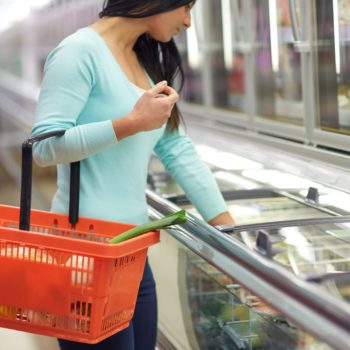Inconvenient truth: supermarket giants failing to stock budget ranges in smaller stores, Which? reveals

Consumer champion urges UK supermarkets to stock healthy budget foods in convenience stores
28 April 2023
Despite millions of people all over the country struggling with food inflation at its highest in 45 years, consumer champion Which? has carried out a study in the UK which finds that people are potentially being unjustly penalised during the cost of living crisis because big retailers are failing to stock essential items from their value ranges in convenience stores.
Supermarket basic ranges provide a vital cheaper option to low income households and budgeting families who may not be able to afford more expensive branded or premium foods.
However, Which? has found that essential budget range items are hardly ever stocked in smaller stores – even though two thirds (66%) of those on £21,000 or less shop in a convenience store at least once a week. This means that people who have low mobility or no access to public or private transport to reach a larger supermarket are potentially being forced to buy more expensive foods or go without.
In a mystery shop of 123 Asda, Morrisons, Sainsbury’s and Tesco stores, Which? sent researchers to check the availability of a list of around 29 everyday budget items, including dried pasta, tinned tomatoes, fresh fruit and vegetables, minced meat and tinned fish.
On average, the biggest supermarket stores had 87% of the products Which? was looking for, or an equivalent product in the same range. Across all four big brands (Asda, Morrisons, Tesco, Sainsbury’s), budget range minced meat, tuna and ketchup had the worst stock on average despite the likelihood that other versions of these products would be much more expensive.
However, in small Tesco Express, Sainsbury’s Local and Morrisons Daily convenience stores, the budget line items on Which?’s list were available less than 1 per cent of the time. Of the 35 small stores from these three chains visited across the country by Which?’s mystery shoppers, 30 did not have in stock any of the budget range items on the list at all. The remaining five stores only stocked one budget range item from the list each.
As part of the research, Which? included three parliamentary constituencies considered high priority – where people are the most vulnerable to food insecurity in the UK – and where more than half of supermarkets are small stores – Don Valley in Yorkshire, North West Durham, in the North East, and Rhondda, in Wales. Across these three areas, Which? made 12 visits to four small stores and found that none of the items on the list of budget essentials were available in any of these stores.
Grace*, 77, who lives in Huntingdon, Cambridgeshire, told Which?: “I live in a rural location and no longer drive any distance. I have an order delivered by a leading supermarket about once a month, choosing their cheapest delivery charge, and top up at my local small store. It’s the topping up that can be more expensive. I worry about being able to keep to my budget.”
Anita, a 34 year old mother of two from the Cotswolds, has to factor in the cost of petrol whenever she wants to do a big shop. She told Which?: “Shopping at the local small supermarket is tricky for my family due to our allergies. I’d like to see supermarkets stock more affordable options for people with allergies, and more budget product ranges in smaller convenience stores.”
By not adequately stocking budget range necessities in their small stores, Which? argues supermarkets are leaving consumers who only have access to smaller stores less able to access affordable, healthy food. Worryingly, these people are more likely to be living on lower incomes, meaning they are less able to afford the higher priced items offered in small stores.
Which? is now calling on supermarket bosses to address the disparity between convenience stores and their larger supermarket counterparts so that everyone around the country, especially in places identified as being high priority, is able to access nutritious budget range food at a store near them.
As part of its Affordable Food For All campaign, Which? is also calling for all supermarkets to make pricing and offers more transparent so that people can easily work out which products offer the best value.
“At a time when millions of people are struggling to put food on the table, it’s shocking that budget range foods are not available to people who can’t get to a large supermarket. Everyone should have access to affordable nutritious food no matter where they live,” said Sue Davies, Which? head of food policy.
“Which? is now calling on supermarket bosses to ensure budget ranges that support a healthy diet are available in convenience stores, especially in areas where people are struggling the most,” she added. “They must also make it easier for all customers to work out which items offer the best value for money by making sure their pricing is clear and easily comparable. ”



 Print
Print






Fans 0
Followers